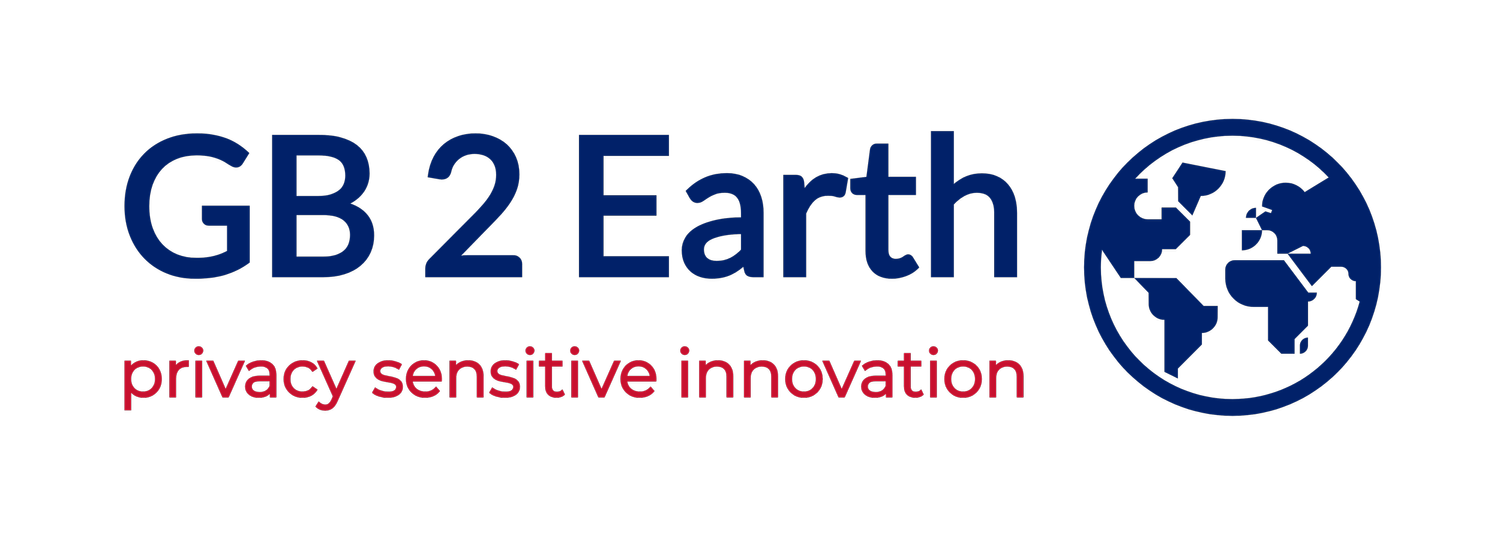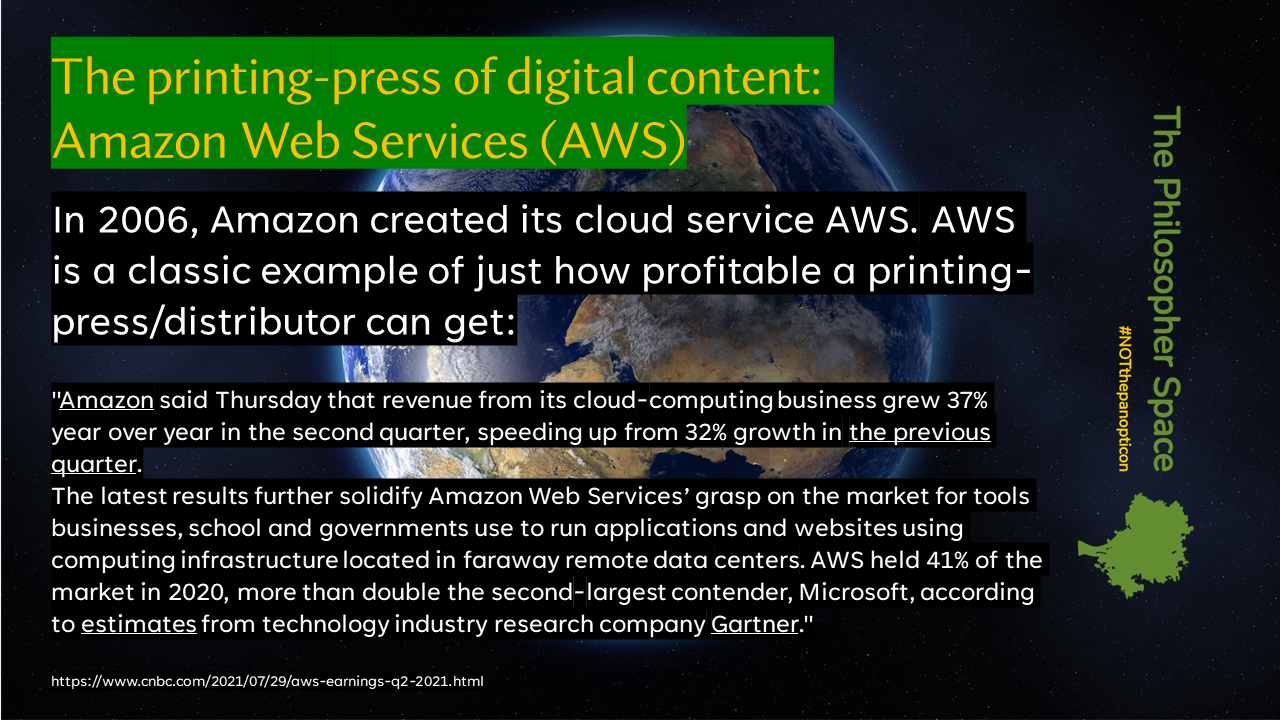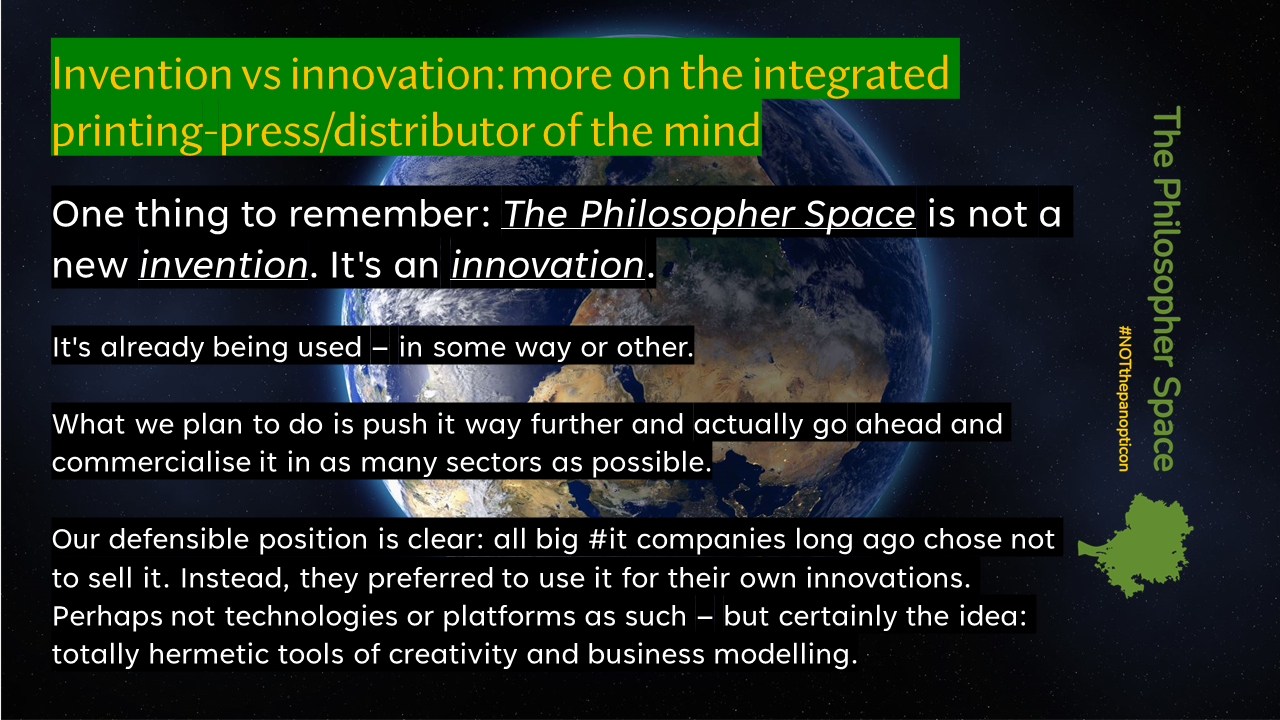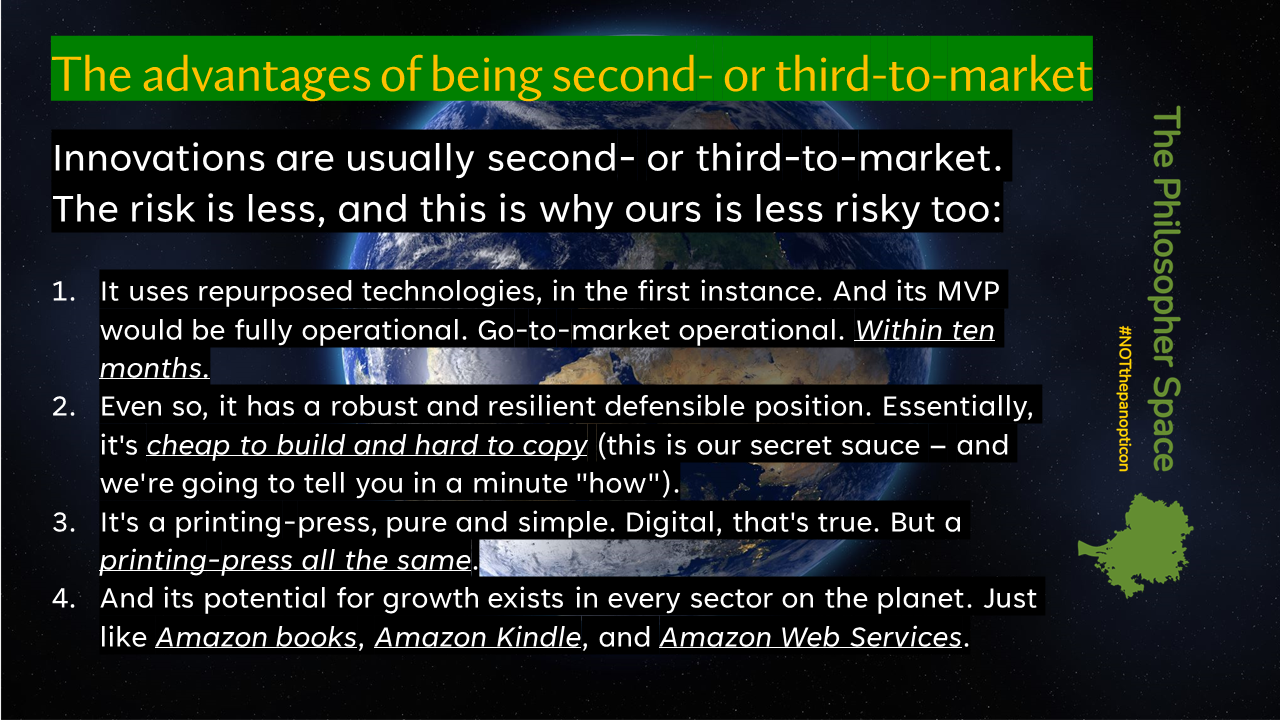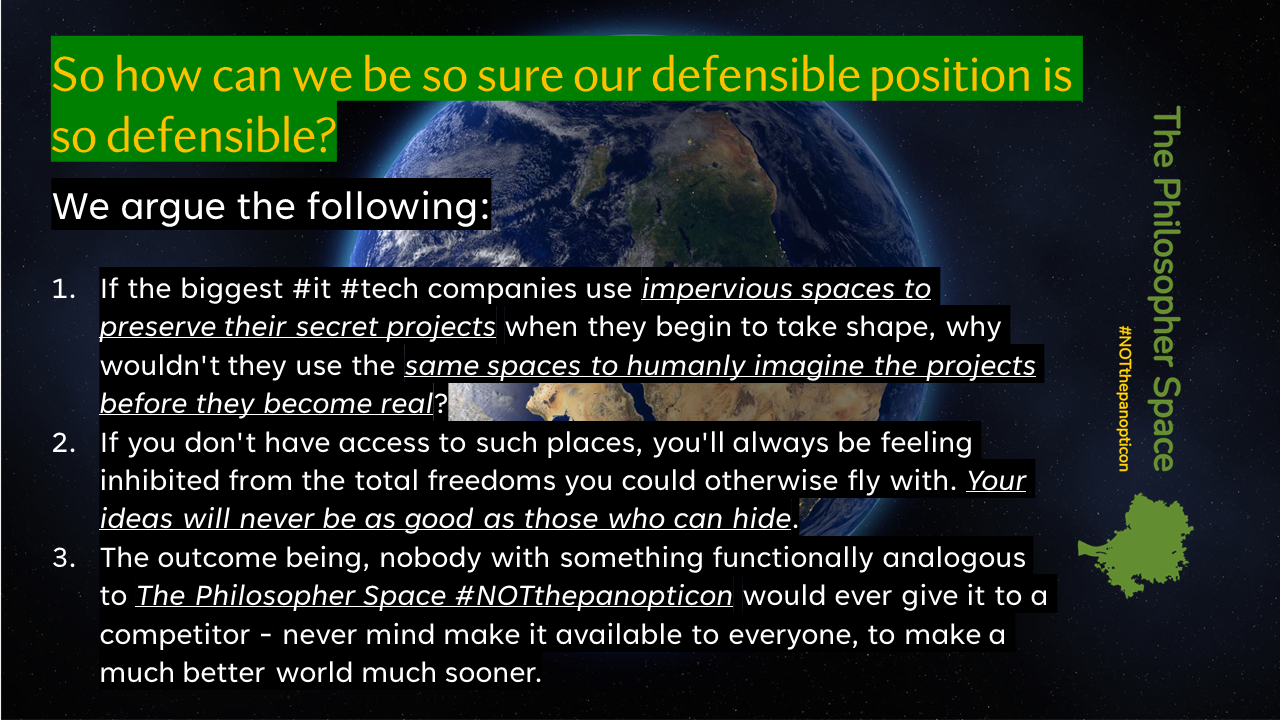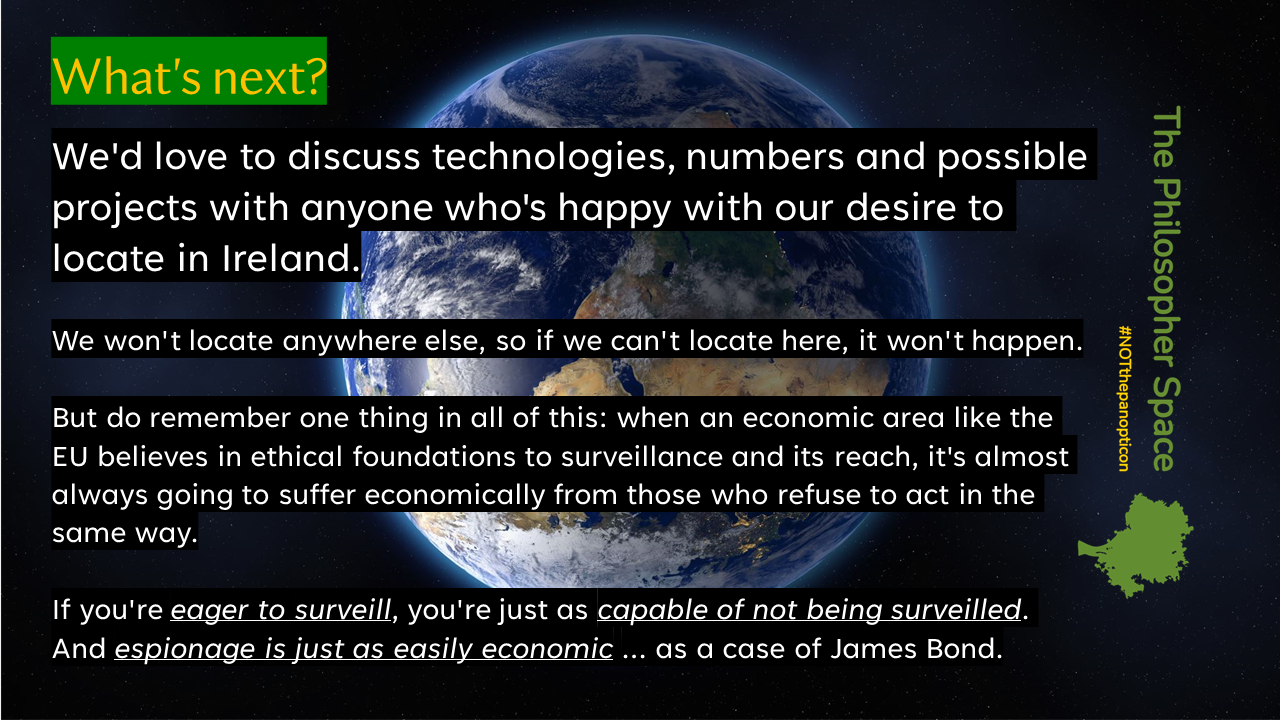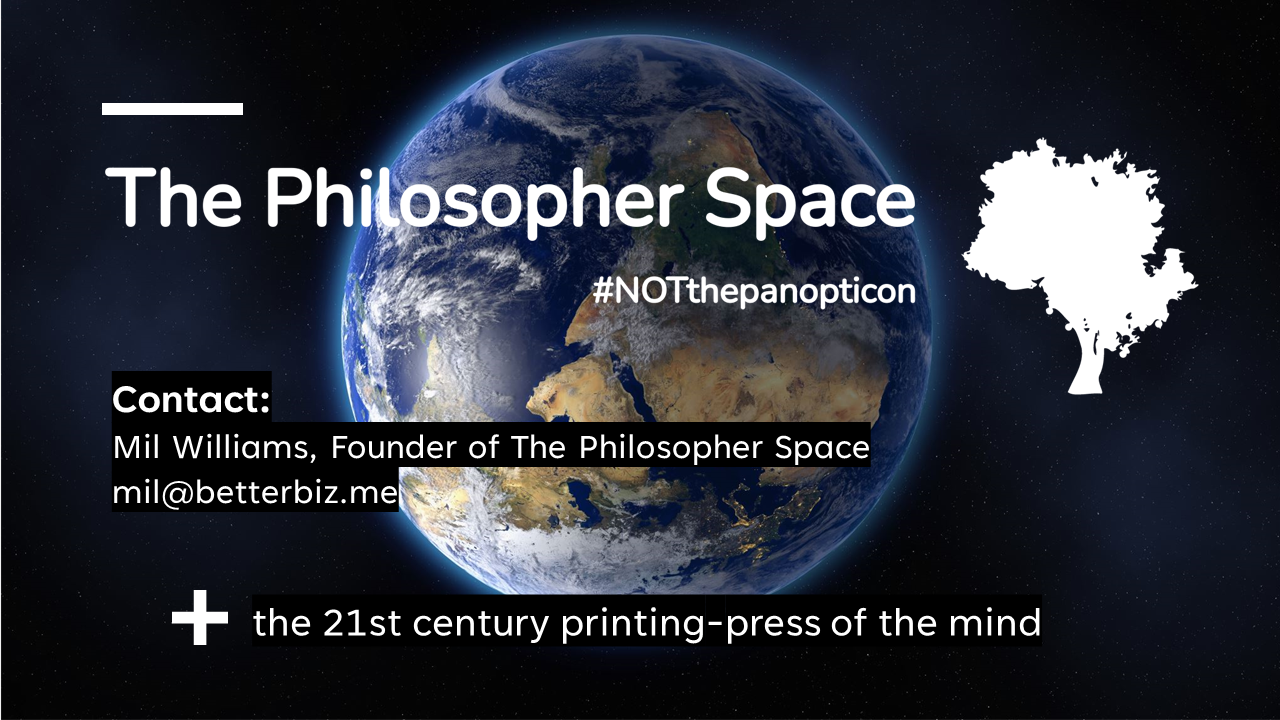“The Philosopher Space” concept originally completed early 2022
The Philosopher Space
Space 0.0: About
The founder of The Philosopher Space (TPS) studied an MA in International Criminal Justice from 2016 to 2017.
He stumbled across three main ideas whilst on his Criminal Justice journey:
One was mental illness – the medicalised approach to mental dysfunction, where the onus is placed on the individual to survive, whatever life throws their way – versus mental distress, the socialised approach to mental dysfunction, where the focus is placed on changing the environment that is causing so much anguish.
The former approach implicitly blames the victim for a deficiency. The latter advocates their support through challenging moments into better times.
The second was Jeremy Bentham’s invention of a deliberately uncertain surveillance regime, where prisoners in a prison would never know whether they were being watched or not, delivering the resulting behavioural inhibitions extremely cost-effectively. This device he called the panopticon: en.wikipedia.org/wiki/Panopticon.
It’s widely used in modern Western democracy at the moment, not least in digital and cyber contexts: the philosophy of total surveillance – where all citizens are watched because they must be, without reference to their criminality – is Bentham’s panopticon translated to the virtual world, where all-too-legitimate post-9/11 fears of further terrorist acts have ruled democratic practice for quite some time.
The third was the science of epigenetics: amongst many other interesting matters, it shows us how the human brain can be physically modified by traumatic and/or deep emotional experiences; that is, by what happens to it, not inside it.
The above three ideas are what led the founder of TPS to begin to consider what humans have lost, since the 21st century panopticon took over.
In separate studies, perhaps thought experiments would be more accurate, since around 2017-2018 whilst working and travelling between the UK and the Irish Republic, he began to evaluate the possibilities of improving human beings’ capabilities in respect of:
capturing their intuitive thinking better; then
capturing, evidencing (ie storing & retrieving), and validating it; then
beginning to capture, evidence, and validate it safely and securely in inside-out ways (not intruding in on but defending out from), guaranteeing a privacy not seen in computers since they were connected to networks; before, finally, proposing the delivery of all the above
in order to ultimately expand, enhance, upskill, and thus empower the human brain, for the individual before their community, way beyond any intuitive capabilities experienced to date.
That is to say, already at the level of certain intuitive thinking, as exhibited by a select few of the powerful – yet rarely offered up as a practical option to a majority.
In particular, a majority which the founder of TPS had already seen – for understandable reasons, whilst society suffered during the aftermath of 9/11 – were widely and profoundly subjected to the uncertainty-generating, intuition-inhibiting, digital panopticons which this majority (though not the select few) now find themselves inhabiting.

Space 1.0
Why we need nonconformists
If you can’t get what you want professionally where you are, move; and if you can’t get what you want professionally anywhere, move anyway. Move to where you are your very best “personal”. Move away — not from toxic people; people are never the deepest problems, tbh. Toxic communities, companies, cities and nation-states are. It’s these we must move away from, once we have failed to change them.
Everything has to be so carefully balanced. It’s like the legislative bodies of a sophisticated constitution: executive in consonance or versus … what do you really want?
If your community is cool, and your companies also, and the cities are smart as in human not as in tech, then the nation-state can still mess everything up.
It’s such a delicate ecosystem, the expression of uncommon common sense. We usually get outliers — latterday outlaws, if you like — whose role it is to do the dirty work of leaderships, various. Plausible deniability to the very front, too.
What precisely we need is — literally — outliers of a radically different nature: many more non-conformists; far more non-conformism. Why? Change comes from dissonance, not agreement. Change is forged not in the pains of same-ism but in the rains of idleness: the procrastination — that is, the undirected thought — of deep creativity really does have no paragon.
We have to recapture our capacity to be non-conformist: communities, companies, cities, and nation-states all.
We just have to.
I’m telling you.
And so then: what do we propose? A space for the brain that is utterly safe, and private: a secret garden no one can even pretend to enter; the choices we may one day recover … sharing only when ready, never before.
#NOTthepanopticon
And when we’ve had the time and space – particularly space, particularly this imperviousness – to deepen our own singular intelligences, we can choose or not to collaborate with others: but always out of liberty and the integrity of just being human.
The hyper-teams we write about separately. Those federations of human beings: no longer inspected into efficiency by the collectivisation which currently, generally, commands and controls.
Space 1.1: The Hyper-Team Space
Nonconformism and working in teams
Of course, as always in life, two is better than one; and squaring circles always the most intellectually robust way forwards.
As Fitzgerald was quoted as saying:
The test of a first-rate intelligence is the ability to hold two opposing ideas in mind at the same time and still retain the ability to function. One should, for example, be able to see that things are hopeless yet be determined to make them otherwise.
F Scott Fitzgerald
So although for me large companies have inevitably replicated the kind of collectivism none of us should ever admire, even as elements of more democratic impulses do exist for sure, my ideal destination for The Philosopher Space would be:
to create tools that would lead us all to having the opportunity to reach out towards becoming in some way or other the solitary geniuses of the Teslas of this world; and then
make what we might term a hyper-team out of a collaborative mix of the resulting hyper-fabulous individuals.
So maybe NOT discard corporate team-making altogether, after all; just put in a massive brainspace environment as suggested, at the start of each set of thought processes in question, so deep arationality and profound individuality were no longer subsumed to the necessary shared outcomes and interests of the wider masses.
